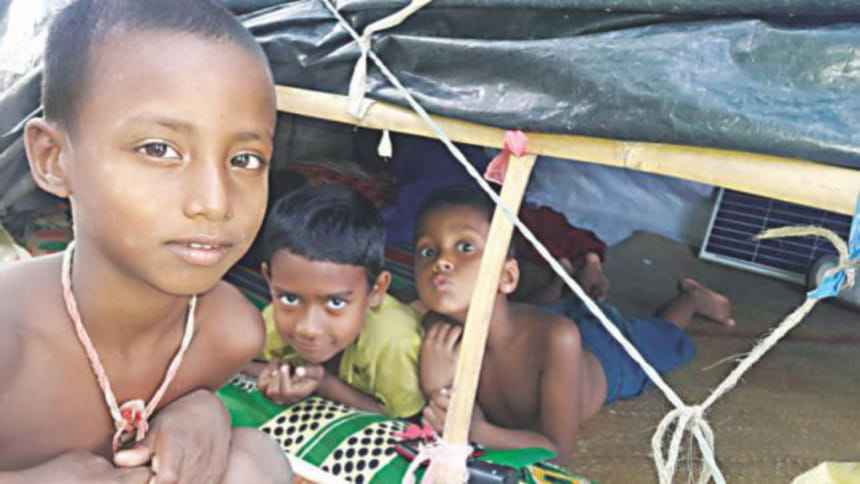A child’s right to identity

A name and a nationality are every child's right. They are cardinal principles enshrined in the Convention on the Rights of the Child and other key international treaties. At the same time, what is internationally accepted as a vital necessity is not always put into practice around the world. In Bangladesh, it is estimated that in 2018 the births of almost nine million children under the age of five years have not been registered. This can have profound consequences for their later lives.
Birth registrations are a civil process that ensures a child's right to an identity. The information recorded at registration provides a child with protection under the law and access to essential basic services such as education and health. Further, it assists the government as it plans national policies on a range of development issues.
Without birth registrations, it becomes difficult to protect children against early marriages, child labour and other pernicious forms of exploitation and abuse. In the absence of a birth certificate, the police, for example, face substantial problems in determining the age of child offenders or trafficking victims.
This lack of formal recognition also means that some children can be unfairly treated as adult criminal suspects. They face difficulties in getting access to social assistance or a job in the formal sector. Furthermore, there are problems when it comes to buying or inheriting property and in voting.
Unregistered children are, to all intents and purposes, officially invisible. They have no legal proof of their names, family links or nationalities. Their needs are not counted or considered in national statistics including vital registration which are used to plan and shape government policies in a wide range of development issues including health, education, housing, water, sanitation, employment, agriculture and industrial production.
Registering children at birth is the first step in securing a child's recognition and visibility before the law. It plays a critically important role in safeguarding children's rights and ensuring that any violation of these rights does not go unnoticed. It must be noted that birth registration does not automatically confer nationality upon a child. In Bangladesh, citizenship is acquired by applying several strict legal criteria like many other countries. At the same time, it also needs to be noted that without birth registration which is a basis for legal identity, it becomes challenging even to move from where one is to another country to which she or he rightfully belongs.
There have been positive improvements in relation to birth registration in Bangladesh over the past ten years. Because birth registration is now compulsory, there have been substantial increases in registration rates by the age of five from 37 percent (Multiple Indicator Cluster Surveys 2013) to 56 percent (Multiple Indicator Cluster Surveys 2019). Much has been done, but much more needs to be done quickly to achieve universal birth registration in a middle-income Bangladesh.
What is required is actions at both "demand" and "supply" end. For the former, there is a need for awareness-raising of parents about the critical importance of birth registration. For the latter, the system and procedure related to birth registration need to become much easier and more accessible. In this regard, linkages between the health system database and the birth registration database would help to reach children who are brought for vaccination within the sixth week of birth. Also as the institutional delivery rate in Bangladesh is increasing year by year, a system can be established in such a way that children born in health facilities are registered right then and there as a "captive audience".
No child should remain invisible, and no life should remain uncounted.
Natalie McCauley is Chief of Child Protection Section, UNICEF Bangladesh.

 For all latest news, follow The Daily Star's Google News channel.
For all latest news, follow The Daily Star's Google News channel. 



Comments